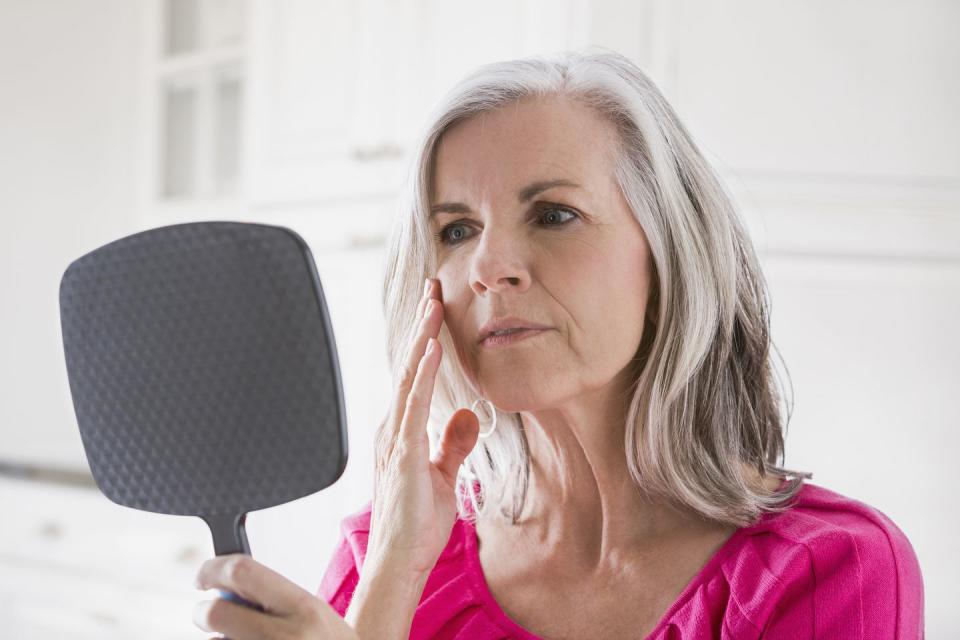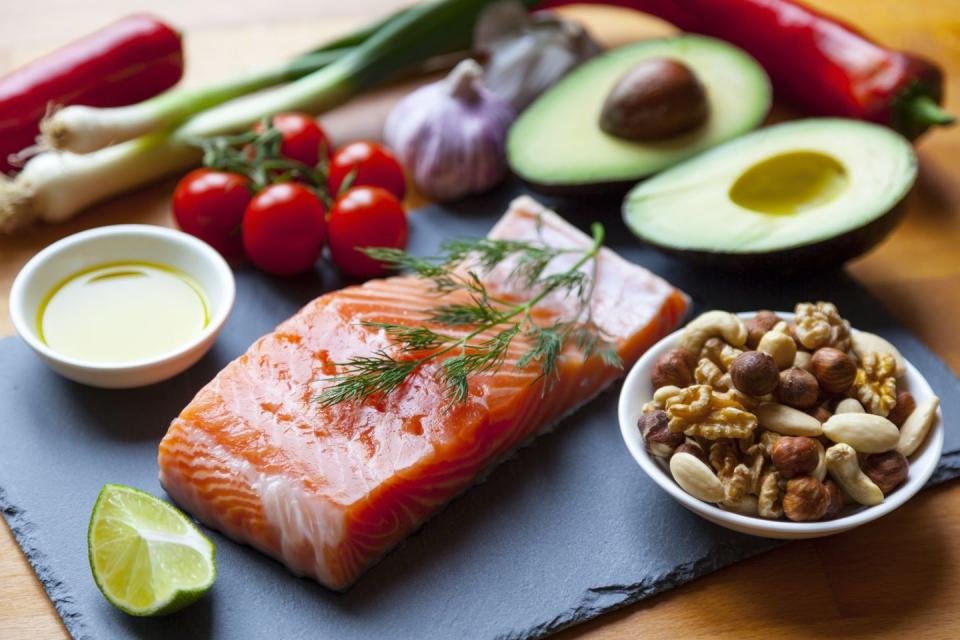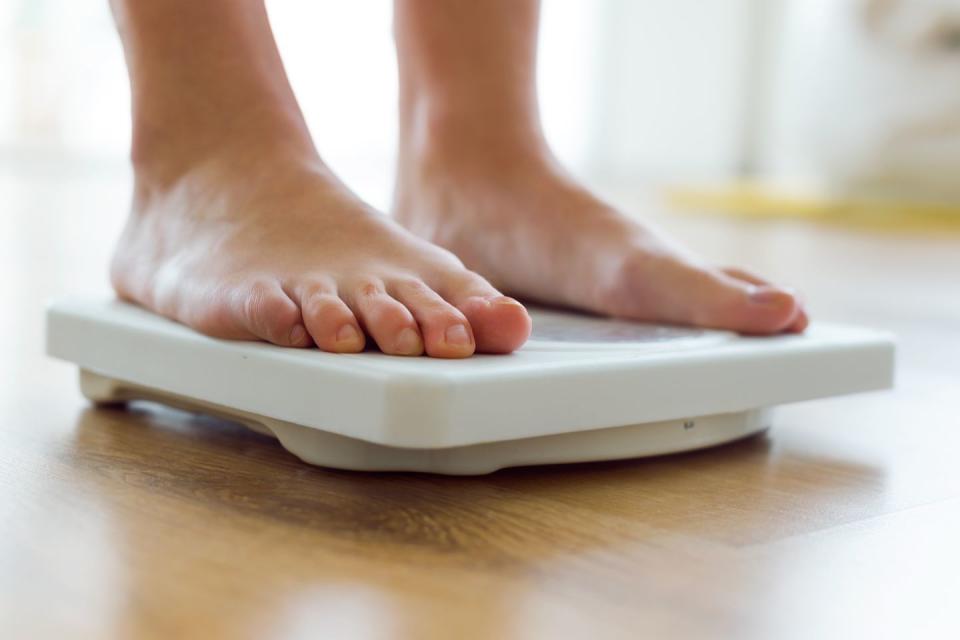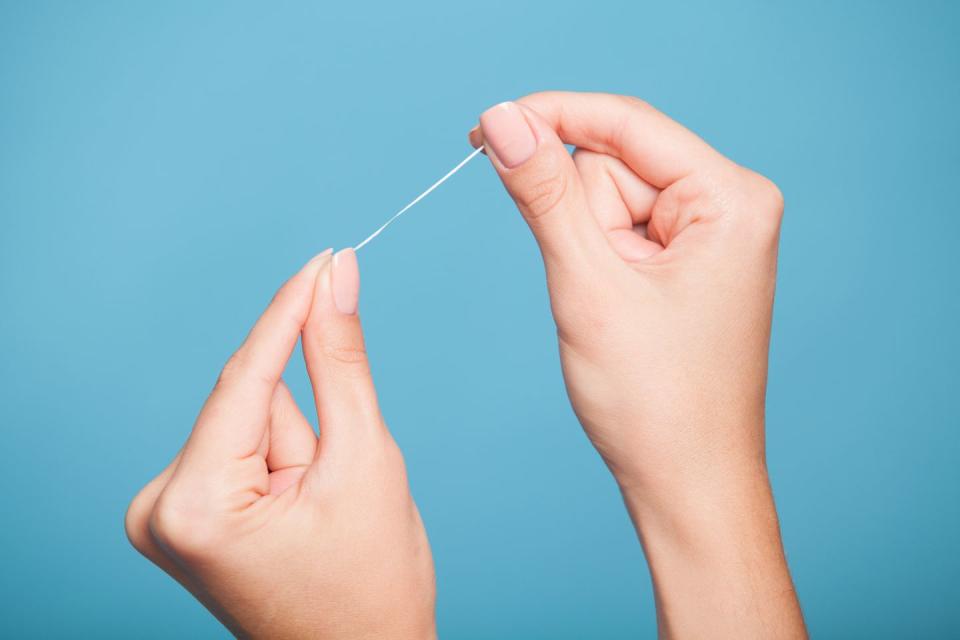How to reduce inflammation

Inflammation is the latest health buzzword that everyone is talking about, and it’s being investigated for its role in a range of age-related conditions, such as Alzheimer’s, heart disease and even wrinkles. So, what can we do to limit it and make sure we age well? Here’s what you need to know…
What is inflammation?
There’s the healthy kind of inflammation that occurs if we’re ill or injured in the form of pain, redness, swelling, fever or fatigue. This is the immune system seeing off invaders, such as bacteria and viruses, or healing injuries. When the job’s done, the inflammatory process is turned off and we go back to normal.
Then there’s chronic inflammation, which can go on for months or years and damage tissues, organs and cells. This is associated with health issues, such as heart disease, diabetes and Alzheimer’s.
How do you know if you have inflammation?
There are biomarkers in the blood, such as C-reactive protein and proinflammatory cytokines (proteins that alter immune system response), which scientists look for to detect inflammation. However, low-grade inflammation won’t necessarily produce symptoms until it causes a health problem. ‘You may not feel your best; perhaps run-down, tired or prone to catching infections,’ says Fulvio D’Acquisto, professor of immunology at the University of Roehampton. ‘But generally, you can’t feel inflammation.’
Should everyone try to reduce inflammation?
‘Inflammation doesn’t cause disease in everyone because we all respond to it in different ways,’ explains Professor D’Acquisto. ‘We can see patterns, but our genetics and immune systems are as different as our fingerprints. We all have some level of it and, while adopting healthy lifestyle habits is not a cure-all, it can have a range of positive effects on inflammation.’
Janice Kiecolt-Glaser, professor of psychiatry and behavioural health at
The Ohio State University College of Medicine agrees. ‘Research talks about “inflamm-ageing”, a natural, age-related increase in inflammation,’ she says. ‘Maintaining a healthy lifestyle reduces this trajectory and limits the low-grade inflammation that contributes to many diseases associated with ageing.’
The good news is that, with simple tweaks to your lifestyle, you can reduce this low-level inflammation and prevent many age-related conditions associated with it. Read on to find out how…
Does inflammation cause wrinkles?
‘Chronic inflammation can accelerate inflamm-ageing,’ says Dr Thiviyani Maruthappu, consultant dermatologist and British Skin Foundation spokesperson. ‘In the skin, this presents as wrinkles and loss of elasticity due to collagen degradation and hyperpigmentation, such as age spots. Low-grade inflammation can exacerbate skin conditions, such as psoriasis. I run a psoriasis clinic and advise patients to adopt a Mediterranean diet and exercise as part of a holistic approach to reduce chronic inflammation.’

How to reduce inflammation
Eat the right foods
Why?
Food can be a powerful weapon against inflammation, even if you already have an inflammatory disease. Adopting an anti-inflammatory diet may cut the risk of early death from all causes, according to a comprehensive 2018 study in the Journal Of Internal Medicine, and research also shows that it may reduce the likelihood of developing depression.
How?
Follow a Mediterranean diet. Eat plenty of different coloured fruits and vegetables ‘Our bodies face daily environmental challenges and this triggers inflammatory processes, often caused by free radicals,’ says clinical dietician Dr Bridgette Wilson. ‘These are like little fires and I describe antioxidants in fruit and veg as firefighters that put them out.’
Up your intake of omega 3s. Aim for two to three portions of oily fish each week, plus nuts and seeds – fatty acids can reduce the risk of inflammation.
Limit your intake of processed foods. Saturated fats, trans fats, fried foods, sugary drinks, red meat and processed meat can all increase inflammation.
Eat good fats. ‘Monounsaturates, such as those in olive oil, reduce bad cholesterol or low-density lipoproteins (LDL) and increase good cholesterol or high-density lipoproteins (HDL),’ says Dr Wilson. ‘LDL is proinflammatory as it deposits plaques that stimulate arterial inflammation.’ However, even good fats should be eaten in moderate amounts.
Focus on fibre. ‘Research indicates that a high-fibre diet is anti-inflammatory, whereas a diet high in fat or protein raises inflammation,’ says Dr Wilson. ‘Fibre promotes good bacteria in the gut and also lowers cholesterol. Eat more oats, beans and pulses.’
Choose low GI foods. ‘High levels of insulin after a meal can be proinflammatory,’ says Dr Wilson. ‘So eat low-GI foods, such as wholegrains and sweet potato, instead of refined carbohydrates, such as white rice.’
Enjoy coffee, dark chocolate and red wine. A review in the British Medical Journal states that coffee is packed with antioxidants and is anti-inflammatory, while the flavonoids found in cacao are extremely potent antioxidants and anti-inflammatory agents. It’s true that excessive alcohol consumption can be inflammatory, but red wine contains anti-inflammatory polyphenols, so enjoy it in moderation.

Tackle stress
Why? ‘Reducing chronic stress is good for your immune response and lowering inflammation,’ says Professor D’Acquisto. ‘When we sense danger, our bodies release immune cells in preparation for the attack. That’s a healthy inflammatory response to acute stress, but when we activate it repeatedly and there’s no healing to be done, this can affect the body’s ability to regulate inflammation.’
How? ‘Stress is often unavoidable, but there’s evidence that activities such as meditation and yoga can reduce inflammation,’ says Professor Kiecolt-Glaser.
Science is also turning its attention to other relaxing activities. ‘Studies have shown that when we listen to music there’s a decrease in stress hormones and a boost in the activity of chemical messengers that alter levels of inflammation,’ says Dr Daisy Fancourt, a specialist in arts and health at University College London. ‘Drumming and singing have also been found to reduce inflammation levels.’

Aim for a healthy weight
Why? Obesity is described as a ‘state of low-grade inflammation’. Body fat (adipose tissue) releases inflammatory proteins and research shows that it suppresses anti-inflammatory proteins. ‘The more adipose tissue you have, the greater the source of inflammatory proteins,’ says Dr Lettie Bishop, a reader in exercise immunology at Loughborough University.
How? Visit nhs.uk for its free 12-week plan for sustainable weight loss. Even if you already have an inflammatory disease, losing weight can help. According to the charity Versus Arthritis, inflammation caused by having too much body fat can make joints painful. Losing weight may reduce inflammation in any type of arthritis.

Exercise regularly
Why? Many studies show a link between the amount of activity we do and levels of inflammatory markers,’ says Dr Bishop. ‘One study of 4,300 people found that even though inflammation biomarkers increased over 10 years, those who remained regularly active during that time had lower levels of inflammation.’
How? ‘High-intensity interval training (HIIT) is very effective for reducing inflammation,’ says Dr Bishop. ‘But it’s not for everyone. Regular brisk walking will also reduce levels of chronic inflammation. We’ve even found it to be effective in people with kidney disease (an inflammatory condition).’
Look after your oral health
Why? Gum diseases are caused by bacteria that grow in dental plaque and they’ve been shown to increase the risk of developing systemic inflammatory disorders,’ says Dr Svetislav Zaric, clinical associate professor in biomedical science at Peninsula Dental School. ‘For example, oral bacteria has been associated with cardiovascular disorders and detected in heart tissues, and there is a link between oral bacteria and rheumatoid arthritis.’
How? Brush morning and evening, floss regularly and keep up to date with dental check-ups. Mild gum disease (gingivitis) can sometimes be treated with good oral hygiene, but more severe cases need dental and medical treatment.

Give up smoking
Why? Giving up the cigarettes is a no-brainer but, as bad habits go, smoking is one of the most inflammatory. According to a 2018 study, smoking is a strong activator of systemic inflammation, whereas stopping is linked to a lower concentration of inflammatory markers.
How? Find support to help you quit for good at nhs.uk/smokefree.
Sleep well
Why?
Obstructive sleep apnoea (pauses in breathing when you are asleep) is associated with inflammation and it can lead to heart disease. ‘This appears to be because of repeated falls in oxygen level and sleep deprivation from repeated waking, both of which lead to inflammation in the cardiovascular system,’ says
Dr John O’Reilly, consultant in respiratory and sleep medicine at sleephubs.com. ‘That inflammation can cause plaque to build up in the arteries.’ Even if you don’t have sleep apnoea, getting eight hours is vital. ‘Sleep deprivation itself seems to raise inflammation,’ he explains.
How?
If you have sleep apnoea, seek treatment from your GP. ‘There is a significant fall in inflammatory markers after treatment with a continuous positive airway pressure (CPAP) device,’ says Dr O’Reilly.
Want to know more? After struggling with her health in her 50s, journalist Maria Borelius documents her search for the ultimate anti-inflammatory lifestyle in her book, Health Revolution (HarperCollins, out 27 June).
This article originally appeared in the June 2019 issue of Good Housekeeping. SUBSCRIBE HERE
('You Might Also Like',)


